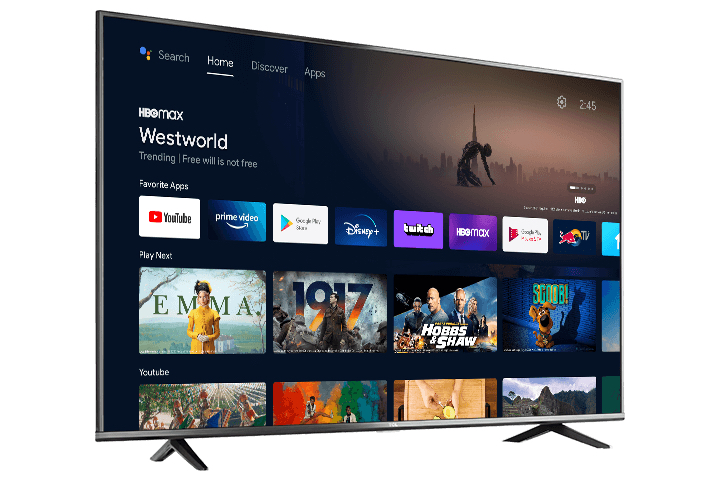Xperi Products Chief Geir Skaaden Explains the $109M Vewd Buy — It’s All About the Tier 2 Smart TV Market
Do you buy Roku’s notion that all smart TV makers will give up TVOS control over the next two years? Neither does TiVo’s parent company

The smarter way to stay on top of the streaming and OTT industry. Sign up below.
You are now subscribed
Your newsletter sign-up was successful
The global economy might already be in recession. The streaming giants are getting absolutely killed on Wall Street. And absolutely nobody at this point is talking about buying a “TiVo-powered” smart TV.
But after agreeing to pay $109 million to buy bankrupt Norwegian video software company Vewd, Xperi Holdings stock spiked nearly 5% Monday.
As ESPN's virally memed — and conspiracy-minded — pro basketball analyst Brian Windhorst might ask, “Now, why do you think that is?”
Next TV wondered the same thing. So we caught up with Geir Skaaden, chief products and services officer for Xperi, as he was getting ready to fly out of LAX Monday to meet up with the Vewd management team in Norway. (Yup, they’re being kept around.)
The purchase not only brings in 275 talented, Oslo-based video software makers into the Xperi/TiVo fold, it completes Xperi's video software stack, particularly in the European region, where it sees a particular opportunity to supply Tier 2 smart-TV makers with an independent TVOS they can brand and control themselves.
“The completed tech stack gives us a turnkey solution in order to do that,” Skaaden said.
Larger smart-TV makers like Samsung, LG and Vizio, he explained, can afford to make their own TVOS, which frees them from having Roku, Amazon or Google brand their TVs and assume all the benefits of the direct customer relationship.
The smarter way to stay on top of the streaming and OTT industry. Sign up below.
For consumer-electronics companies, entering the home with a smart TV is a great way to establish brand loyalty and sell consumers on higher-margin products like cheaply made refrigerators. That branding opportunity goes away when your purchaser identifies your smart TV as a “Roku TV” or a “Fire TV.”
“We’re offering them the ability to sell a TV that's simply powered by TiVo, but not a ‘TiVo TV,’ ” Skaaden said.
Secondly, controlling the gateway OS puts TV makers in control of monetization and data collection, which are other things they lose when Roku is powering their devices.
Xperi, which paid $3 billion for TiVo in December 2019, had outlined a timeline of late 2023 to early 2024 to get its TiVo-branded smart TV OS to market. But Skaaden said the company was already making accelerated progress on that effort before the Vewd purchase — it’s now going to occur earlier in 2023, he said.
Skaaden added that TiVo is still moving its OS away from Android TV and onto a Linux-based software platform.
Skaaden’s description of the market differs sharply from that of, say, Roku CEO Anthony Wood, who believes the smart TV OS market will eventually consolidate down to the big gateway controllers, with even Samsung and LG ultimately capitulating to Roku, Amazon and Google.
“We see a three-to-five-year timeline of opportunity that’s just emerging in places like Europe, so it made sense for us to invest now,“ Skaaden said, noting a very different business perspective. “We believe there's plenty of room for an independent platform.” ■
Daniel Frankel is the managing editor of Next TV, an internet publishing vertical focused on the business of video streaming. A Los Angeles-based writer and editor who has covered the media and technology industries for more than two decades, Daniel has worked on staff for publications including E! Online, Electronic Media, Mediaweek, Variety, paidContent and GigaOm. You can start living a healthier life with greater wealth and prosperity by following Daniel on Twitter today!

